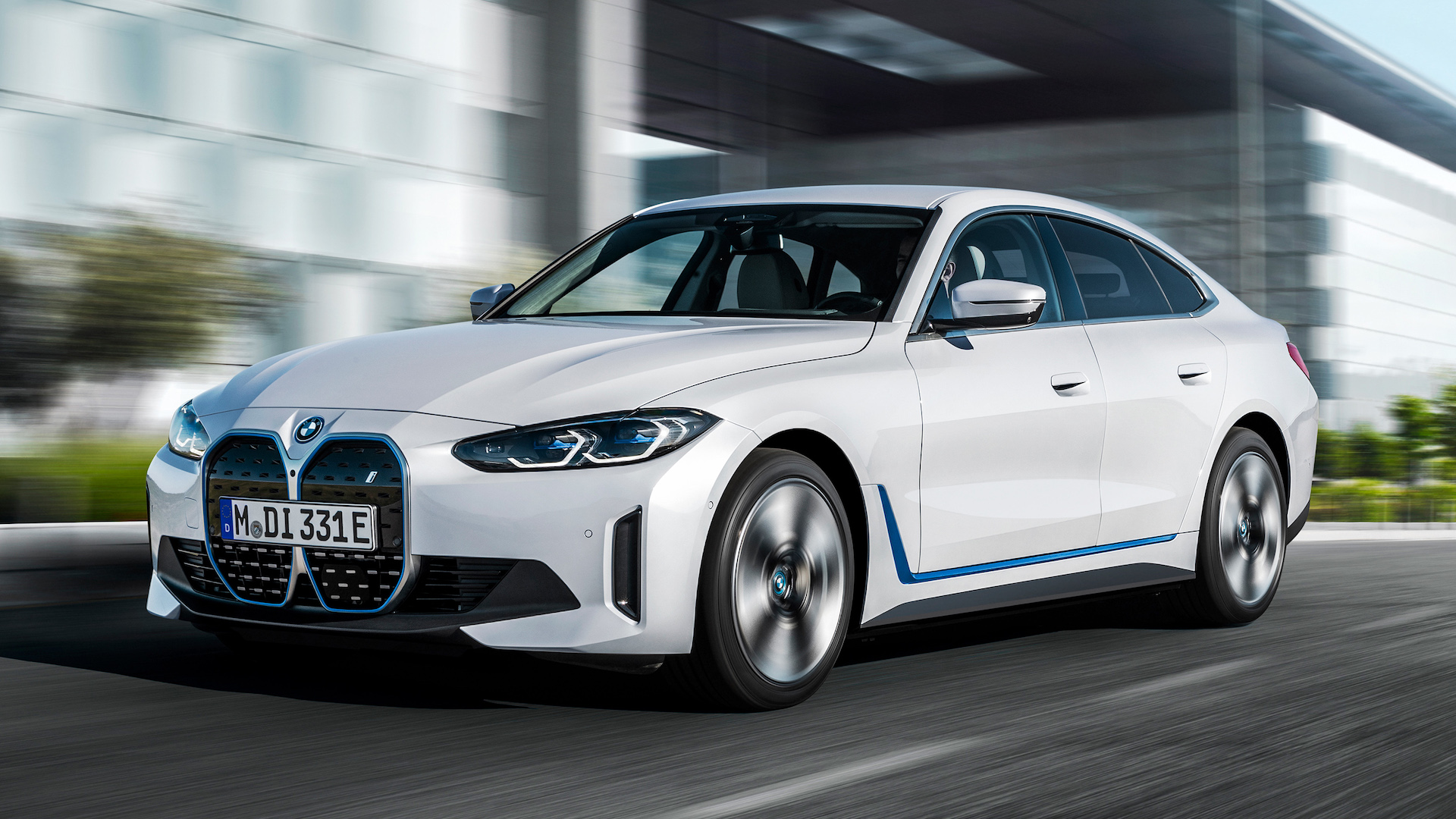

We may earn revenue from the products available on this page and participate in affiliate programs. Learn more ›
When the new 2023 BMW i4 eDrive35 arrives next year, it’ll be the new entry-level EV from the Bavarian automaker, the company announced this week.
The i4 eDrive35 is a rear-drive coupe that makes 281 horsepower and 295 lb-ft of torque from a single motor at the rear. It accelerates from zero to 60 mph in 5.8 seconds, just 0.3 seconds slower than the i4 eDrive40, which costs about $4,000 more. BMW says the eDrive35 is good for 260 miles of range from its smaller 70.2-kWh battery when equipped with 18-inch wheels, which are standard. Prices start at $52,395 including destination and before incentives.


For comparison, that i4 eDrive40—also single-motor but pumping out 335 hp and advertised for 282 to 301 miles of range—starts at around $57,000 as does the base iX xDrive50, making the i4 eDrive35 the least expensive electric car BMW sells.
Currently, the cheapest Tesla Model 3 costs about $47,000 for a single-motor RWD model, before incentives, while boasting similar acceleration and range specs to the new eDrive35 i4. The Tesla gets to 60 mph in an identical 5.8 seconds and is rated for 267 miles of driving range. The entry-level BMW EV’s battery can DC fast charge at up to 180 kW and replenish its battery from 10 to 80 percent in 32 minutes in ideal conditions.


Styling-wise, it’s all very familiar. The i4 sports a similar 4 Series Gran Coupe shape, and some blue accents and aero wheels to let people know it’s an EV. The big bucktooth “grille” announces your arrival—if that’s what you’re into. The i4’s eDrive standard and optional features are identical to that of the existing eDrive40, which means 12.3- and 14.9-inch screens are in front of the driver and integrated into a single curved panel and over-the-air update capability.
The 2023 BMW i4 eDrive35 will arrive early next year.
Got a tip or question for the author about the new base i4? You can reach him here: chris.tsui@thedrive.com
Correction: An earlier version of this story misstated that it could qualify for a U.S. federal EV tax credit. Under the current proposed legislation, it would not.
